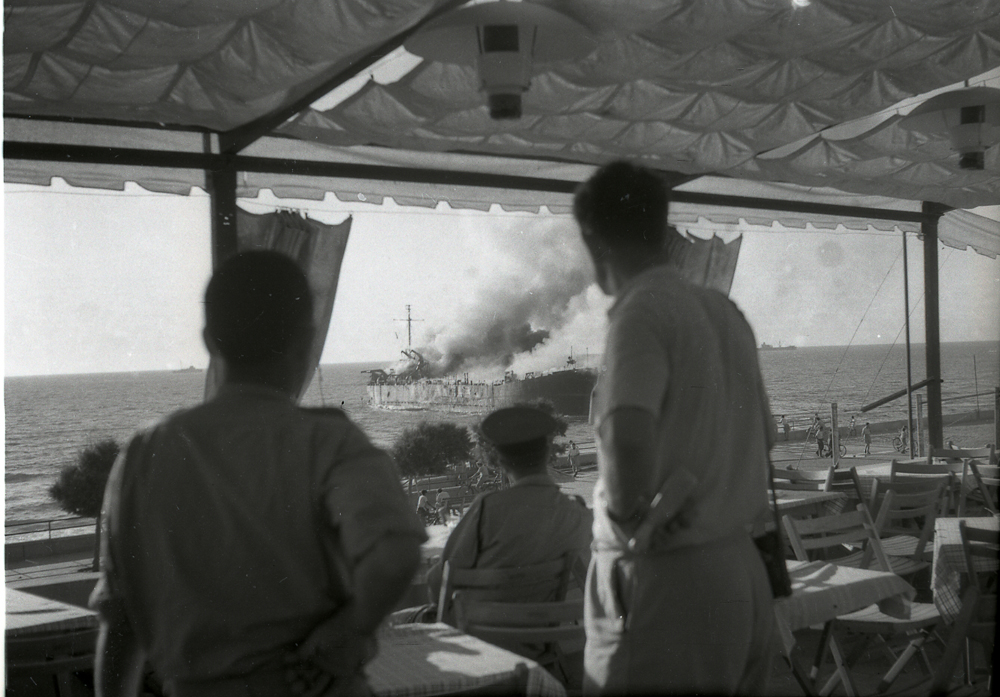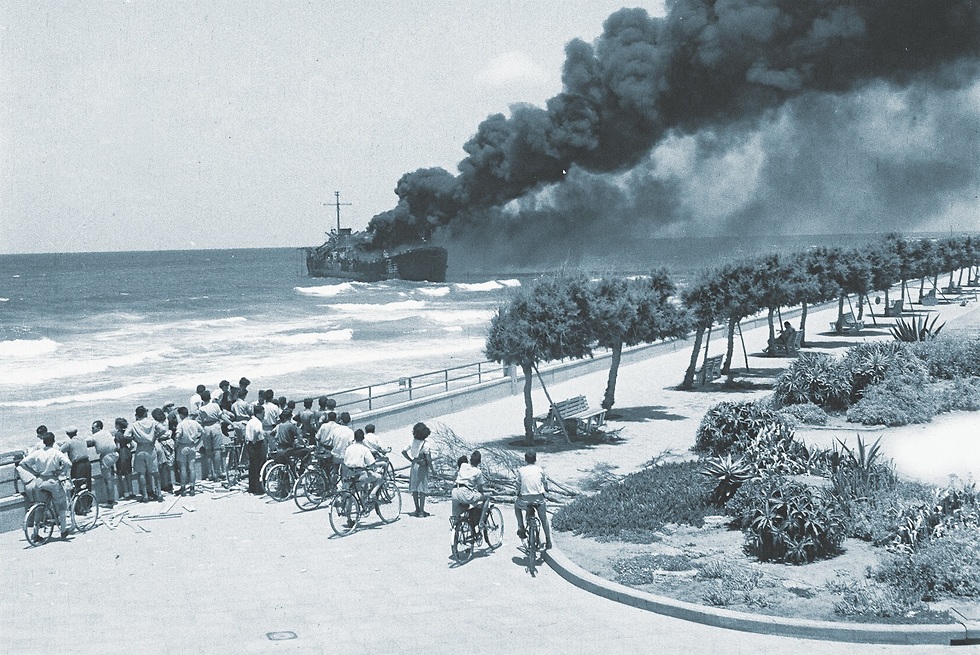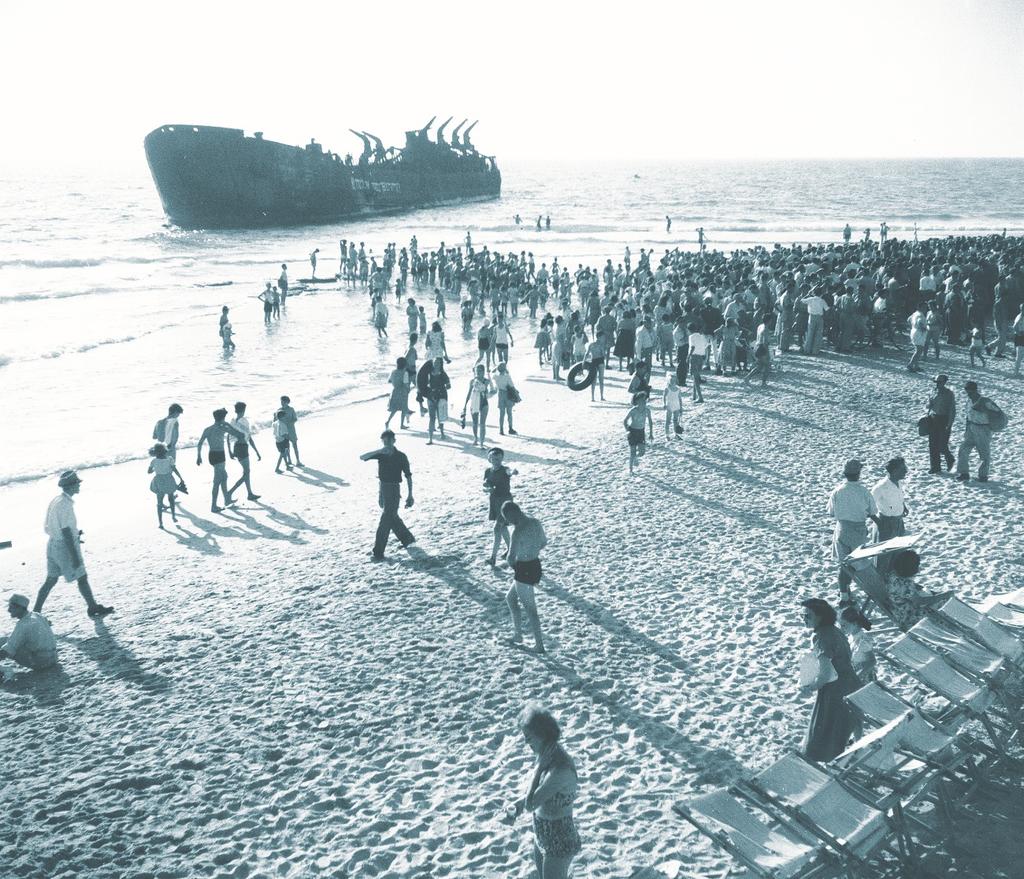Getting your Trinity Audio player ready...
Four years ago, I was updating my book on the Altalena Affair before the release of its new edition.
This violent confrontation that took place in June 1948 between the newly created Israel Defense Forces and the Irgun (also known as IZL) - one of the Jewish paramilitary groups that were in the process of merging to form the IDF - was another tragic tale in the history of inter-Jewish wars.
One of the most baffling events that followed this ordeal, where IDF Deputy Chief of Staff Maj. Gen. Zvi Ayalon, under oath at the High Court of Justice, accused Irgun seniors of treason.
I couldn't believe it. Five names that made history, souls that sacrificed themselves on the altar of the new state, turned to traitors with one trick of the tongue.
The major general claimed there was evidence to support his claim and then-Attorney General Ya'akov Shapira revealed that, "authorities considered arresting the detainees on charges of treason in the first place but taking into account the seriousness of the charges and these daring times, authorities preferred to arrest them until they could no longer endanger the peace of the State of Israel again."
Although all five were sent to home as if nothing had happened, they were left with a mark of disgrace. I raised the issue in my last letter to former IDF Chief of Staff Gadi Aizenkot to posthumously clear their names.
The request was forwarded to the Department of History and a month later, I received an answer from the Chief of Staff's bureau, saying that, "the five Irgun fighters, referred to by the Deputy Chief of Staff, were released to their homes without any criminal proceedings against them.
"Then-prime minister and defense minister, David Ben-Gurion, sought to integrate them in senior positions in the IDF, hence our understanding is that his conduct removed any blemish from them."
The five were former Finance Minister Ya'akov Meridor, member of the first Knesset Hillel Kook, captain of the Altalena and later a member of the first Knesset Eliyahu Lankin, Bezalel Amitzur who oversaw the integration of Irgun fighters in the IDF, and Moshe Hason, who did not enter public life.
From looking at the piles of documents I have gathered on the matter, I figured it was time to exonerate the Irgun in general and the hundreds of its detainees who were eventually sent home but kept bearing a stigma of traitors.
Such a move could only be pulled off by the prime minister at a cabinet meeting. This is a statement that must be immortalized in the protocols.
This is supposed to be a response and repentance for the Provisional Government and the Provisional State Council protocols during the events of Altalena in June 1948, which serve as a reliable source for historians and scholars alike.
In Yedioth Ahronoth's May 30, 2018 edition, I implored Prime Minister Benjamin Netanyahu to exonerate the Altalena five.
"The fallen were not traitors," said Netanyahu at a June 3 cabinet meeting, "but patriots of the highest order."
Indeed, 19 people lost their lives on the three fronts that the Altalena faced during these fateful three days in June 1948 – in Kfar Vitkin, en route from Beit Dagan to the coasts of Tel Aviv, and off Tel Aviv's shores.
Among those who perished were 16 Irgun men (one of them was a mole of the rival Haganah resistance movement from before the establishment of the state, and the defense authorities did not even bother to bury him with his men), and three more Haganah members. Altogether, 19 young men, who loved Israel dearly, had fallen. But for what? And why?
3 View gallery


People watching the burning Altalena from the balcony of a local Tel Aviv restaurant
(Photo: State Archive)
President Reuven Rivlin once wrote that the Altalena Affair was still a burning issue.
"Such issues are never-ending, and one will always be able to learn new insights and hidden details about them," wrote Rivlin, referring to the Altalena five.
Now, it is the time to mass exonerate all Irgun members, and better earlier, such as the event's 72nd anniversary – which takes place on Sunday – than later.



